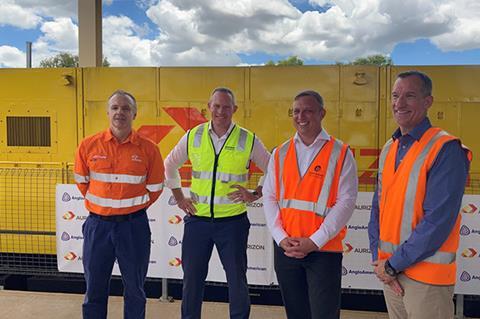
AUSTRALIA: The feasibility of using hydrogen fuel cell locomotives to haul bulk freight trains is to be investigated by operator Aurizon and mining company Anglo American.
Anglo American has developed proprietary hydrogen fuel cell and battery hybrid power units for heavy mining vehicles with a view to replacing the majority of diesel use at its sites, and a prototype is on test in South Africa.
The study with Aurizon will look at the potential application of hydrogen traction to heavy haul rail operations on the 180 km Moura corridor linking Anglo American’s Dawson metallurgical coal mine with Gladstone port, and on the 977 km Mount Isa corridor between the North West Minerals Province and Townsville port via Aurizon’s Stuart Terminal.
Subject to the outcome of the study, the agreement could be extended to include detailed engineering and the development of a prototype locomotive.
‘Our agreement with Aurizon marks the first time our hydrogen power technology could be tested beyond our existing mine haul truck programme’, said Anglo American Technical Director Tony O’Neill on December 13. ‘Displacing our use of diesel is critical to eliminating emissions at our sites and along our value chain. We believe that our innovative hydrogen-led technology provides a versatile solution, whether for trucks or trains or other forms of heavy duty transport.’
Aurizon is also researching battery-powered trains with industry parties and Australian universities.
‘Hydrogen offers enormous opportunity in decarbonising and continuing to improve the competitiveness of Australia’s export supply chains’, said the rail operator’s Managing Director & CEO Andrew Harding. ‘This is especially true for bulk products underpinning the Australian economy including minerals, agricultural products and fertilisers, industrials and general freight.
‘Zero-carbon hydrogen-powered trains would also significantly boost the current environmental benefits of transporting more of Australia’s bulk freight on rail. Rail freight already produces up to 16 times less carbon pollution per tonne kilometre than road.’
















